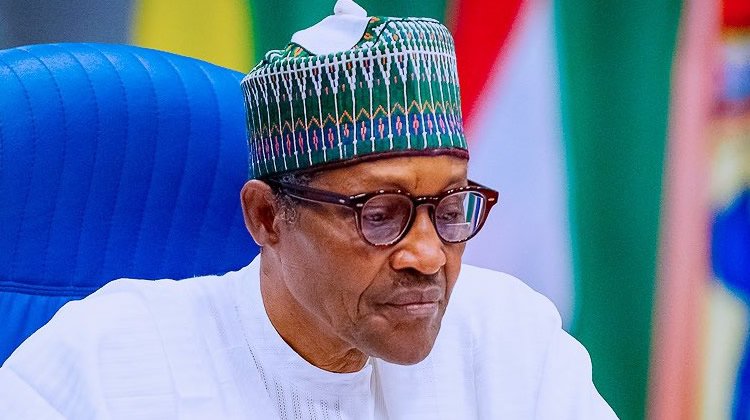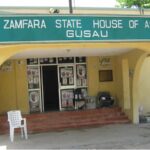
Civil Society Legislative Advocacy Centre, the national chapter of Transparency International, has listed key weaknesses to explain why Nigeria may not have improved in its fight against corruption.
This was after Nigeria, in the 2021 Corruption Perceptions Index released by TI on Tuesday, dropped five places, scoring 24 out of 100 points.
In a statement on Tuesday, signed by the Executive Director, Auwal Ibrahim Musa, CISLAC-TI urged the Nigerian government to consider the weaknesses, adding that actions should be taken to tackle systemic corruption and salvage Nigeria’s deteriorating image when it comes to corruption.
It said the weaknesses require immediate improvement for the sake of the well-being of ordinary Nigerians and the economy.
Damning Audit Report
According to CISLAC-TI, the “Non-Compliance/Internal Control Weaknesses Issues in Ministries, Departments and Agencies (MDAs)” report for 2019 published by the Office of the Auditor General of the Federation in November 2021, left Nigerians in awe. It said the level of financial recklessness, abuse of budgetary processes, and failure of Ministries, Departments and Agencies in following the due process of appropriation is disturbing.
Citing the Auditor General’s revelation that the sum of N49bn was spent by nine MDAs without appropriation by the National Assembly, CISLAC-TI stated that “this is in gross violation of section 80 (4) of the 1999 Constitution (As Amended).”
Security Sector Corruption
CISLAC-TI lamented the systemic corruption in the Nigeria Police Force which it said has sadly continued unabated and with the police at the frontline of Nigeria’s criminal justice system with enormous powers to investigate and prosecute crimes.
“This weakness puts the country in bad light. As a matter of fact, the Police was indicted by the Auditor General’s report on the ‘Non- Compliance/Internal Control Weaknesses Issues in Ministries, Departments and Agencies (MDAs) published in November 2021’ and Nigerians are still struggling to understand how 178,459 arms and ammunition were missing from the armoury of the Nigeria Police without trace. Of this figure, 88, 078 were AK-47 assault rifles and 3,907 assorted rifles and pistols. For context, these arms are enough to arm a force equivalent to about 25 per cent of the current strength of the Nigeria Police at 370,000 which gives an explanation on the level of insecurity in the country,” it said.
Failure to investigate high profile corruption cases and prevent IFFs
The organisation commended Nigeria’s anti-graft agencies, saying they have made commendable progress in their efforts to combat corruption in 2021 with an increase in convictions.
“However, high profile convictions of Politically Exposed Persons (PEPs) across political, regional and any other form of divide has fallen short of public expectations,” it said.
“While we commend the arrest of cybercriminals and call on the anti-graft agencies to do more, there is a need to investigate high profile political cases including those of individuals who have switched political affiliations. A case in point is the Pandora Papers revelations which is one of the biggest ever corruption leaks led by the International Consortium of Investigative Journalists (ICIJ) and over 600 journalists from 117 countries, including Journalists from Nigeria’s Premium Times.”
The Pandora Papers published in 2021 reveals that Nigeria tops the African continent when looking at the number of those exposed.
CISLAC-TI lamented that “since its release on October 3, 2021, Nigerians are yet to see any action or get answers from anti-graft agencies whose work has been made easier by the diligent reporters from Premium Times which highlighted stolen or suspiciously acquired assets to be investigated.”
Absence of asset recovery, protection of whistle-blowers
CISLAC-TI said Nigerian anti-graft agencies have made progress in recoveries, specifically those that have been finally forfeited.
“Sadly, the repeated failure to enact the Proceeds of Crime Act as a legal framework for the management and utilization of recovered assets in Nigeria which is one of the key pillars of this administration’s anti-corruption strategy is inexplicable! While Nigerians read about these recoveries by the numerous agencies with mandates to recover assets, Nigerians are in the dark as to the status of these recoveries. Yet, Nigeria is expected to incur a deficit of about N6 trillion on its 2022 budget,” it said.
Judicial Challenges
The organisation urged the Nigerian judiciary to speed up its delivery of judgement, saying “the delay in treating high profile cases of corruption dampens the morale of anti-graft agencies.”
“It is also important for the National Judicial Council (NJC) to ensure that judicial officers appointed are competent and qualified. The NJC should shun nepotism in its appointment of Judges and also when it undertakes disciplinary actions against Judges.”
Corruption in the COVID-19 Response
Lamenting that there have been reports of diversion of funds earmarked for Nigeria’s response to the COVID-19 pandemic, the organisation pointed out that Nigerians are yet to see any high-profile convictions.
“Individuals have been alleged to use the pandemic response as a conduit to divert funds. This needs to be addressed,” it said.
Twitter ban, shrinking civic space and intimidation of human rights defenders
The organisation said the final weakness relates to the shrinking Civic Space and clampdown on freedom of speech. The theme of the 2021 CPI by TI beams the searchlight on human rights and democracy under attack.
“The arbitrary and illogical decision of the Nigerian government to ban Twitter on the 5th of June 2021 for about seven months stands condemned. While this ban has been lifted just recently, Nigeria is still suffering from the consequences of the ban. According to the CIVICUS monitor, Nigeria’s civic space is repressed,” it said.
Recommendations
In the statement, CISCLAC-TI listed some recommendations which government must implement to address Nigeria’s decline in the corruption ranking.
“The relevant anti-graft agencies should investigate allegations of corruption by Politically Exposed Persons Irrespective of Political Party Affiliation.
“The National Assembly should speed up deliberations and passage of relevant anti-corruption related laws or amendments to strengthen anti- corruption efforts in the interest of Nigerians. The President should assent to these laws once they are passed while taking into consideration the best interest of citizens.
“The Central Bank of Nigeria (CBN), Anti-graft agencies, Ministries of Justice, and Foreign Affairs should work in synergy and engage their international counterparts to ensure that global enablers/middlemen like lawyers, notaries, accountants who help facilitate money laundering and tax evasion are blacklisted, deregistered, or held to account under the several national laws, policies and international frameworks to which Nigeria is a signatory.
“The Nigeria Police Force should urgently investigate the unexplained disappearance of arms and ammunitions as with a view to close the gaps.
“The Nigerian police should strengthen its existing complaints channels by reinforcing the Complaints Response Unit (CRU) of the Police to handle and investigate complaints of misconduct by police officers across the country as provided for in the Police Act 2020.
“The government must ensure democratic and free civic space for engagement with citizenry and the media. The decline in freedom of expression and lack of respect for human rights should be stopped.
“There is also a need to operationalize the anti-corruption strategy to ensure that anti-corruption efforts are not concentrated at the federal level alone. Also, other arms of government need to be involved in the fight against corruption. It should not be left to the executive arm alone,” CISLAC-TI recommended.
Copyright PUNCH.
All rights reserved. This material, and other digital content on this website, may not be reproduced, published, broadcast, rewritten or redistributed in whole or in part without prior express written permission from PUNCH.
Contact: [email protected]





